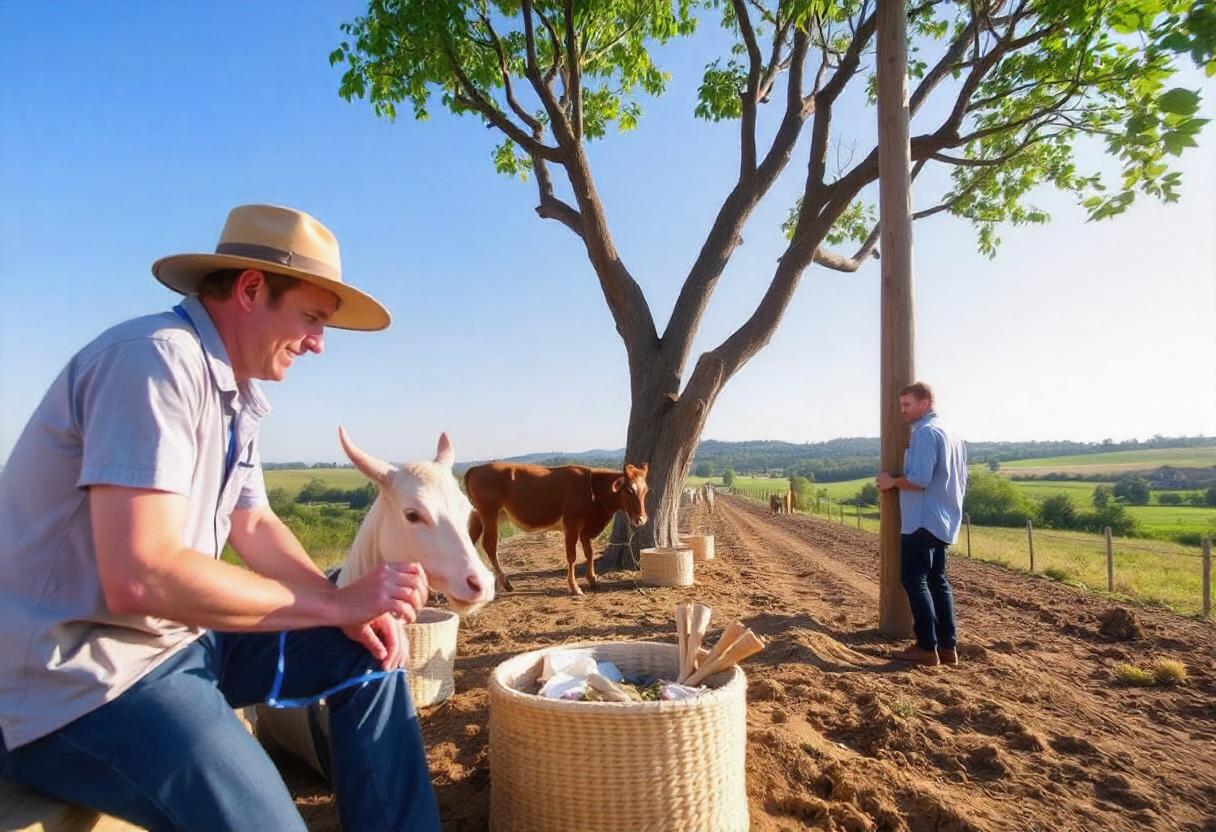
Agri-tourism is a form of niche tourism that revolves around agricultural activities. It offers visitors a chance to experience life on a farm, engage in agricultural processes, and learn more about rural lifestyles. This type of tourism not only helps farmers generate additional income but also educates visitors about sustainable agriculture and the importance of farming to the economy.
The Evolution of Agri-Tourism
Agri-tourism has evolved as people seek authentic experiences and a connection to nature. With the increasing urbanization and detachment from rural life, many individuals, especially those in cities, are curious about how their food is grown, harvested, and prepared. Over time, farmers began opening their properties to visitors, offering activities such as farm tours, fruit picking, and wine tasting, creating a sustainable model that benefits both the tourism and agricultural sectors.
Key Activities in Agri-Tourism
Agri-tourism offers a wide range of activities that allow visitors to actively participate in farm life. Some of the most popular activities include:
- Farm Tours: Visitors are given guided tours around the farm to learn about crops, livestock, and farming techniques.
- Animal Interaction: Many farms offer opportunities to feed or interact with animals like cows, chickens, goats, and horses.
- Fruit and Vegetable Picking: Guests can pick their own produce, such as strawberries, apples, or pumpkins, which is a fun and educational experience for families.
- Farm Stays: Tourists stay on a working farm, gaining firsthand experience of rural life and daily farm operations.
- Workshops and Classes: Some farms provide educational workshops on topics like cheese making, beekeeping, or sustainable farming.
Benefits of Agri-Tourism for Farmers
Agri-tourism provides farmers with numerous advantages, helping them diversify their income streams. The primary benefits include:
- Increased Revenue: Farmers can earn additional income by hosting visitors and selling farm products directly.
- Brand Promotion: Hosting tourists can create brand awareness and loyalty as visitors learn about and purchase farm products.
- Educational Opportunities: Farmers can educate the public about sustainable farming practices and the importance of agriculture.
- Community Development: Agri-tourism can lead to greater investment in rural areas, improving infrastructure and providing employment opportunities.
Benefits for Tourists
Tourists also reap several benefits from participating in agri-tourism. These include:
- Cultural Exposure: Visitors gain insight into rural culture and traditional farming practices.
- Hands-On Learning: Tourists learn about farming processes, sustainable practices, and food production in an engaging, hands-on way.
- Wellness and Relaxation: Spending time in rural settings can offer a retreat from city life, promoting relaxation and mental well-being.
- Family-Friendly Activities: Agri-tourism provides an array of educational and fun activities suitable for families with children.
Global Agri-Tourism Trends
Agri-tourism has gained popularity in various parts of the world, with each region offering unique agricultural experiences:
- Europe: Countries like Italy and France have embraced agri-tourism, where visitors can participate in grape harvesting, olive oil production, and enjoy stays in rustic farmhouses.
- North America: In the United States and Canada, pumpkin patches, corn mazes, and vineyard tours have become staples of agri-tourism.
- Asia: In India, Japan, and Thailand, rice planting, tea harvesting, and traditional farming practices attract tourists seeking unique agricultural experiences.
- Africa: Safari-style farm tours and sustainable farming workshops in countries like South Africa and Kenya are emerging trends in African agri-tourism.
Challenges Facing Agri-Tourism
Despite its growing popularity, agri-tourism faces several challenges:
- Seasonality: Many agri-tourism activities are tied to specific farming seasons, limiting year-round operations.
- Infrastructure: Some rural areas may lack the necessary infrastructure, such as roads, lodging, or transportation, to accommodate tourists.
- Marketing: Farmers may struggle to effectively market their agri-tourism offerings to attract visitors, particularly if they lack digital or social media expertise.
- Regulations: Depending on the country, there may be legal and regulatory hurdles, such as land use restrictions and health codes, that can complicate the establishment of agri-tourism businesses.